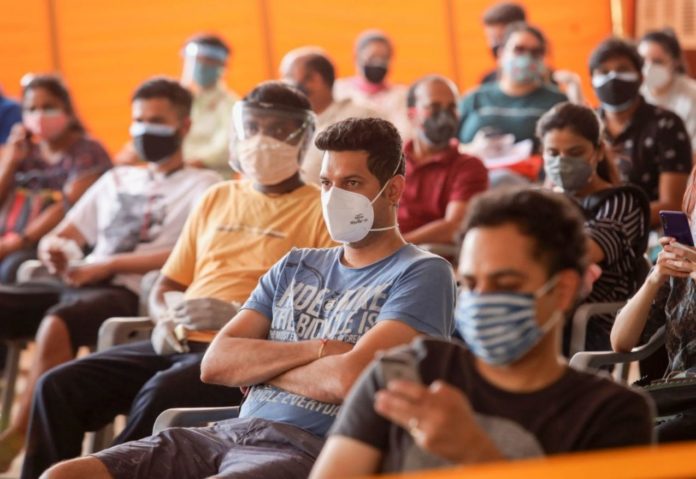A coronavirus variant first detected in India is set to be announced a “variant of concern” by Public Health England, amid fears it is spreading more quickly than others.
The Indian COVID-19 variant known as B1617.2 by PHE, could see an escalation in response, including the use of surge testing.
Some experts warn that the Covid-19 Indian variant is a ‘real concern’ despite the easing lockdown restrictions.
- Does This Mean We Stopped Being Animal and Started Being Human Due to ‘Copy Paste’ Errors?
- The One Lifestyle Choice That Could Reduce Your Heart Disease Risk By More Than 22%
- Aging: This Is What Happens Inside Your Body Right After Exercise
- Immune-Boosting Drink that Mimics Fasting to Reduce Fat – Scientists ‘Were Surprised’ By New Findings
- Gun Violence in America: What They Don’t Talk About at the Debate
Dr. Amir Khan on Good Morning Britain talked about the variant, which is reported to make up 10% of cases in London.
“It’s all about this community transmission,” he explained, adding that the variant has been responsible for certain ‘clusters’ in the UK.
It may well be more transmissible, that’s what scientists believe, and there is some evidence that it could evade the immune response triggered by the vaccine as well
Dr Amir added.
It’s a real concern and something we’ve got to get on top of.
The doctor also emphasized the importance of young people getting their vaccines when they’re invited, and said he expects under-40s to be offered alternatives to Astra-Zeneca.
Figures from the Sanger Institute, which analyses positive swabs for different variants, show the Indian strains of Covid-19 spread widely across England last month, accounting for around 2.4% of all infections in the week ending April 17.
Although numbers are still low, the figures suggest 10% of cases in the capital were caused by the B.1.617 India variants.
The figures are based on tiny numbers of cases so clusters or super-spreading events have an amplified effect that may fade quickly.
However, Professor Christina Pagel, a mathematician at University College London and member of the Independent SAGE panel of experts, said the India variant could be ‘outcompeting’ the Kent variant, which is dominant in the UK.
The numbers are still low but certainly in London right now, B.1.617 and its subtypes are the only variants that appears to be growing
Professor Pagel told MailOnline.
That could be because it is outcompeting other strains, including the dominant Kent strain, or it could be circumstantial in that there were some spreading events that happened that, just by chance, were the Indian strain.
However, I think the experience of India and now its neighbours do provide plenty of reason to be cautious and assume that B.1.617 is more transmissible.
Image Credit: Getty
